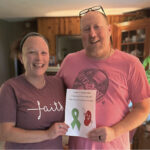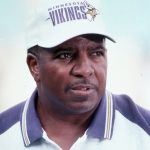 On a Sunday in late June, I went to some polo grounds outside Lancaster.
On a Sunday in late June, I went to some polo grounds outside Lancaster.
The grounds hold Sunday afternoon matches through the summer and are open to the public at five bucks a head. I know next to nothing about polo and nothing whatsoever about the connection between sport horses and Lancaster. But I’d been anticipating the matches for so long, after learning about them online around Christmas, that the two seemed inextricably linked somehow, like Izod and alligators.
The polo grounds are located in Rothsville off Route 772, between Lititz and Brownstown, all of which is meaningless if, like me, you’re not from the area. On the way there, cars piled up behind the horse-drawn buggies of the Amish, waiting for a chance to pass. You might imagine the buggy horses at a leisurely Sunday walk, but the ones we passed were at a speedy trot, reins flapping. I don’t know if the horses think about it, but it felt like a slap to accelerate past them with such ease.
I’ve never owned a horse. I’ve ridden horses maybe three times in my life, and I remember liking it, though it’s been a long time. I’ve fed horses, and I’ve read about feeding horses, and in one case the thing I read was so well-wrought that I remember it more vividly than my own experience (Steinbeck: “daintily nibbling hay with lips like two flounders”).
I’d seen a polo match before, just once. It was in England, at the end of a year I spent there. My dad had come to collect me, and, before we left, we made a detour to an old farmhouse owned by my uncle’s old boss, an investment banker named Martin.
It was there I learned the term “nouveau riche.” Martin had a lot of nice paintings on the walls, and he told us their provenance and what they cost, in the tens of thousands of euro.
“Nouveau riche,” my dad muttered, when we had a moment to ourselves.
Martin also had polo ponies and team of Argentine breeders. On the day of our visit, one of his mares had just foaled. He pointed out the placenta in the grass.
Later that afternoon, Martin played in a match with several other bankers and a man everyone called “General.” The match both looked and sounded like warfare. The riders galloped in a mass, like Huns bearing down on a village. But the impulse to pillage seemed to bottleneck around the white ball. It was so bloody small and elusive!
The stampede would stall, the mallets would go up like stripped flagpoles, and the horde would wheel around clumsily, like a parading high school band at a bend in the road. Then someone would connect and send the ball sailing, and a fresh raid would surge down the pitch, rattling your skull.
In my memory, we stood closer to the horses than was probably possible. I seem to remember a taut thigh streaked with foam—though some author may have planted this, too.
The glistening shank of a horse is a potent thing. In the play “Equus” by Peter Shaffer, an English boy named Alan develops an erotic love for horses. “I couldn’t take my eyes off them,” Alan says. “The way their necks twist, and sweat shines in the folds…”
Perverted, sure. But you can see where he got the idea.
On the day of the match outside Lancaster, the weather was fitful, in a distinctly unpleasant way. It was hot without being sunny, and the clouds threatened rain without actually raining. On the drive, the sky sneezed once or twice on the windshield, and my shirt bunched up at my shoulders. This made me tense. I was ready to watch a war.
Unfortunately, the Lancaster match was more muted than the one I saw in England. There were three ponies per side, on a massive pitch that we sat far back from, on the edge of the flipped-open caboose of a van. To our right and left were other spectators, in a row going all the way down the sideline.
Most of them seemed like regulars. The ones to our right sipped sparkling white wine and discussed which cheese they liked better, this time’s or last time’s.
They also had a giant rubber slingshot that they took out at halftime, to launch water balloons at spectators on the other side. It was all in good sport. After a couple of volleys, somebody ran the thing over to the enemy, so they could fire back.
The teams rode out in opposing livery—red and white for Lancaster, blue and gold for the away team, from Brandywine, in northern Delaware.
Polo is a sport of Persian descent. The game is played in rounds called chukkers, which last 7½ minutes each, separated by breaks in which riders swap in fresh ponies. The announcer referred to the sport as “hockey on horseback.” Riders swipe at the ball with mallets and can check other riders, though they cannot, so far as I can tell, dismount and punch each other.
Polo is also sometimes called the “Sport of Kings,” presumably because it’s expensive to learn and play. At the match, in between chukkers, spectators are invited to wander the pitch and stomp down divots with their feet. This struck me as quaintly egalitarian at first, but, on reflection, seems like a trick of the ruling class. “They’ll do any chore you want, as long as it seems like a privilege”—something like that. Whatever. It felt like a privilege at the time.
We ate some bread and nibbled at some chocolate. I began to wonder if I was not tense, but merely thirsty. It drizzled, then let up, then got sunny, then cloudy again. A water balloon sailed over our heads and exploded in the grass.
Whenever the home team scored, fans tooted their car horns. They did not toot for the away team. The away team had one star player, who had a gray moustache and who swung his mallet in such graceful, carving swoops that it looked like a scimitar. He had several breakaways and sent a couple of arcing shots sailing between the posts from far up the field. There were more goals followed by silence than followed by tooting.
Lancaster scored the last goal, but, by then, they were many points behind. The match ended with a casual trot of the riders around the perimeter of the field. The announcer thanked everyone for coming and invited them to stay and tailgate until 6:30, which seemed like an idea someone should have thought of sooner—pre-gaming without any game scheduled after.
We had no beer, so we packed up the car and said farewell to the folks with the slingshot and cheese. We had not introduced ourselves, but I felt it was an appropriate gesture for a friendly combatant. It seemed like the thing a gentleman would do.





